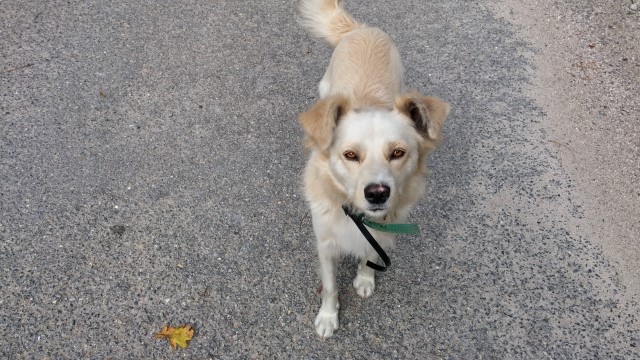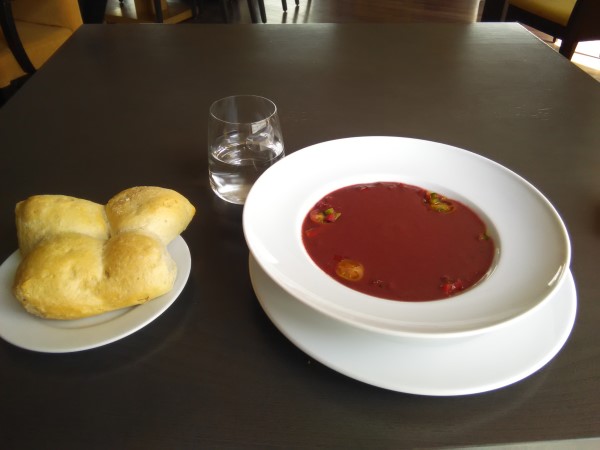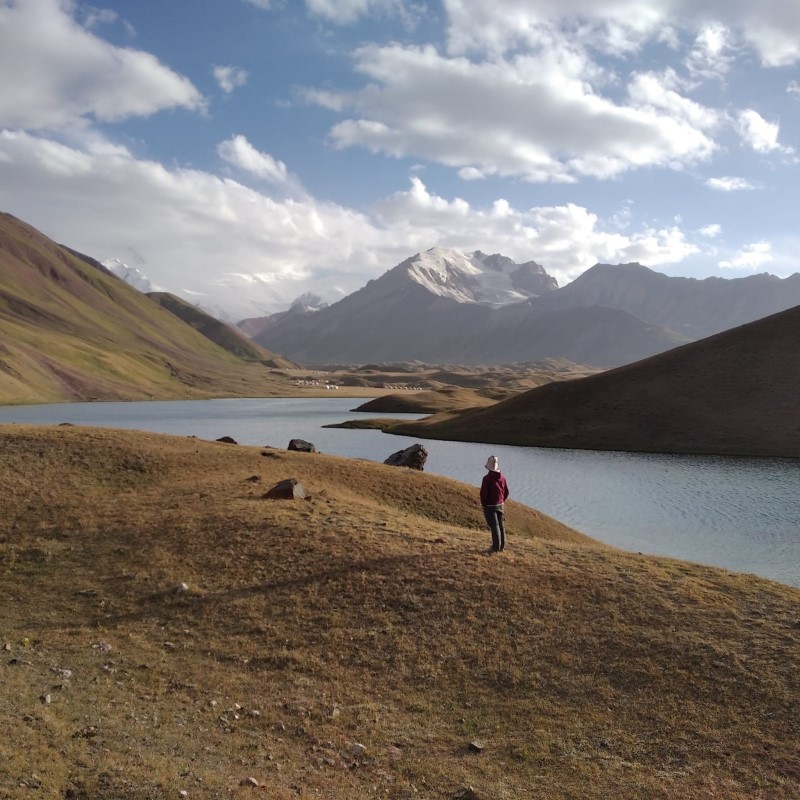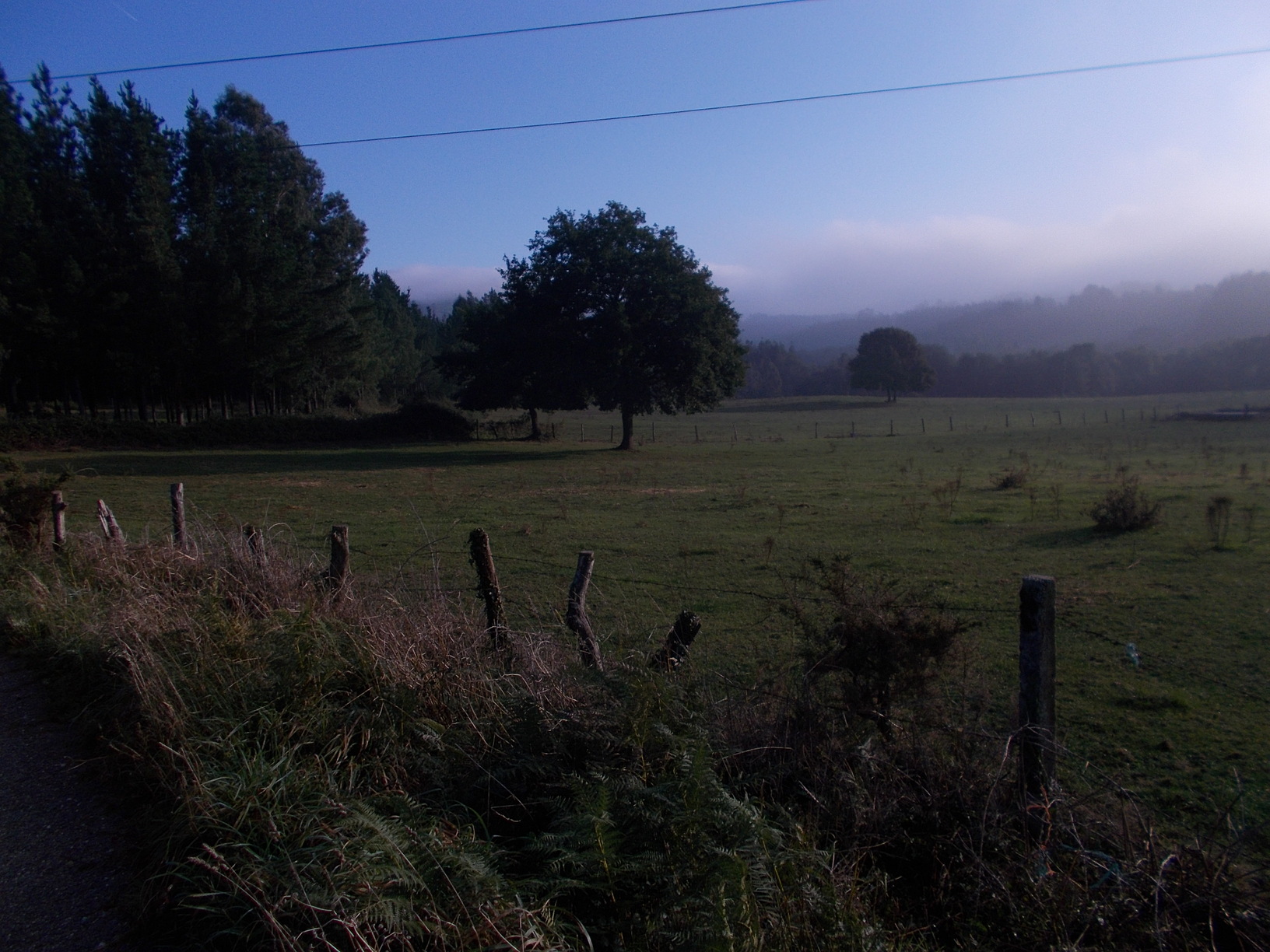Dogs are amazing companions. They help us cope with solitude, bring joy to our life, and can teach us what it means to love unconditionally. Living with a dog, or taking care of one, however, has also some drawbacks. Dogs need to eat, to go for a walk, they need someone to be there for them, at least for five minutes a day. Every day. It can be pretty limiting when we talk about traveling, let alone about embarking on a long journey such as Camino de Santiago. Sure, you can ask someone to take care of your dog for a weekend. Leaving for a month is an entirely different matter though…
No surprise that many people actually consider taking their dog to Spain with them. Better for both you’d think. You do not miss your dog, and it can enjoy this amazing adventure with you. Perhaps it can also protect you on the way, if you are scared of wild animals, wild people :), or stray dogs. We have a separate article online, discussing the pros and cons of walking Camino with the dog, as well as the most recommended route. In this post, however, we will dive into a specific topic of sleeping in albergues when you have a dog with you. Let’s start.
Table of Contents
Dog stays in hotels and hostels are completely legal in Spain
Let’s start with the legal framework. There isn’t any law in Spain that would explicitly forbid dogs (or other pets) from staying in hotels, hostels, or other types of accommodation, together with their owners who pay for the stay.
If an albergue owner claims that dogs cannot stay inside, because it is forbidden, they are not telling you the truth. Sure, pet-friendly hotels and hostels aren’t that common in Spain as they are in many other European counties. Maybe it is because of tradition, I cannot tell. In recent years, however, more and more hotels accept pets, including many luxury places, such as some Paradors.
At the end of the day, the number of pet owners is growing each year in Spain, and the hotels do not want to leave money on the table. What is the situation in the albergues though?

– A nice dog accompanying one of the pilgrims, Camino Fisterre
95% of albergues do not accept dogs to stay inside
I know this is a bit of a letdown, but that’s the present situation in Spain. Pilgrims hostels are specific settings. Often just one person (hospitalero) takes care of everything, including cleaning the place every morning. They have their routines, everything is well-calculated time-wise, and often they simply cannot afford to spend extra thirty minutes vacuuming the place from dog hair.
You should also realize that many of these places are ran on a tight budget, including “donations only” is some cases. Most dogs won’t damage the property, but sometimes they simply cannot take the risk. Another important point to consider is that you typically share a room with other pilgrims in an albergue. There are albergues with private rooms for all pilgrims, but they do not count for more than 10% of the places in total.
Most dog owners are dog lovers, but most of the pilgrims you’ll share accommodation with do not have a dog back home. Some may actually be afraid of dogs, and I believe you will agree with me that the last thing we want to experience on the camino is having rows about dogs in our rooms, or about similar matters. Hence it is perhaps a sensible practice that dogs cannot stay inside of the albergues.
Majority of places accept pilgrims with dogs–but they have to stay outside
Good news is that though you cannot share a bed inside with the dog, they won’t send you away from most places for pilgrims, just because you have a dog with you on the Camino. Except of bigger cities, 95% of all albergues are located in houses, instead of flats. Each such house has some garden or lawn or adjoining property, simply a place where one can pitch a tent or stay for the night in his sleeping bag.
In majority of albergues your dog can stay there for the night–with or without you, as you please. You’ll typically have to pay full price for the housing, even when sleeping outside with the dog. Then of course it depends on the dog–whether it is accustomed to staying alone in the night, or it barks all night long when you aren’t nearby… In both of these cases you can stay in an albergue, take shower, eat dinner and everything, which matters the most after a long day on the way.
Special places run by dog lovers
Walking the camino, you will find all kinds of albergue owners, ranging from altruistic saints to rough businessmen. And many of these people also have a dog, and understand the sort of bond a pilgrim can have with their beloved companion. These people will often create special sleeping places for people with dogs, such as a small wooden cabin outside, with a bed for you & the dog, or an Indian tent, with blankets and everything to make for a comfortable night for both of you.
I may try to put a list of such albergues together, but only if I see there’s enough traffic to these posts about doing camino with the dog, because it makes no sense spending long hours working on a list that eventually only a few people will use :). In the meantime, you can always ask beforehand. Call to the hostel, ask whether you can stay with a dog, and make sure to inquire where exactly you and the dog can stay…

– Casa da Gandara, Camino del Norte. One of the special places you should not miss… The nice wooden cabin in the courtyard (circled in red) in actually a place for pilgrims who do the camino with their dog. And I can tell you it is pretty comfy 🙂
Final thoughts
Though dogs aren’t allowed inside to vast majority of hostels for pilgrims, you can do the camino with your beloved companion without carrying a tent. A bit of planning will help here, but in most places they will allow your dog to sleep outside, either with you or alone–if you prefer to stay inside, in a bed. You will also find some special places on the Camino, run by dog lovers, who will treat your dog as well as any other guest, if not better :). I hope you will enjoy your Camino, and see you in Spain!
Matej
May also interest you: Camping on Camino de Santiago – everything you need to know.



![Ultralight Packing List for Camino de Santiago [2025 Edition]](https://caminolovers.com/wp-content/uploads/2022/03/altra-shoes-640-x-480.jpg)



